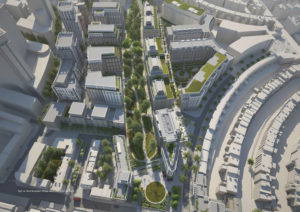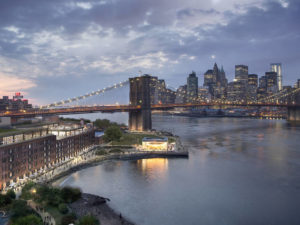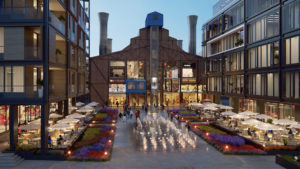The fate of Sir Philip Green's Arcadia empire will be decided tomorrow as hundreds of the retailer's landlords and other creditors will gather at County Hall in central London.
They will vote on seven company voluntary arrangements (CVA) proposed by Arcadia.
Some of the UK's biggest property firms, such as Intu, Hammerson and British Land, as well as Arcadia's suppliers, will be among those casting votes that will determine the future of Green's business and brands which include Topshop, Dorothy Perkins and Miss Selfridge.
Green, who faces assault charges in the US for allegedly smacking a pilates instructor at a spa in Arizona, is not expected to make an appearance. He is believed to be in Monaco, the tax haven where he lives with his wife Tina. Lady Green, who is the official owner of Arcadia.
Arcadia's lead representative will be interim chairman Jamie Drummond-Smith, a restructuring expert and former partner at accountancy giant Deloitte who took over from Baroness Brady in April.
Deloitte, which is advising Arcadia on the CVA procedure, will chair the meeting and the Pension Protection Fund and Arcadia's retirement scheme trustees will be among those asking questions.
Arcadia is thought to have a pension black hole of more than £500 million. The PPF has indicated that it is likely to follow the advice of watchdog The Pensions Regulator, which is thought to have opposed Green's latest funding proposals for the pension scheme.
RPA Perspective The UK’s retailers are warning of a fresh wave of store closures after the British Retail Consortium’s (BRC) health check of consumer spending showed the biggest drop in almost a quarter of a century last month.
Political uncertainty that also led to a contraction in manufacturing has been balmed, said the BRC, with sales down 2.7%.
This represents the weakest performance since it began its monthly survey in 1995 and Helen Dickinson, the BRC’s chief executive, said: “With the biggest decline in retail sales on record, the risk of further job losses and store closures will only increase. While May 2018 offered almost unbroken sunshine, topped off by the run up to the World Cup and the marriage of Meghan and Harry, May 2019 delivered political and economic uncertainty. Food sales dropped for the first time since June 2016, with further declines in clothing, footwear and outdoor goods.”
Consumer spending has been the main driver of the economy in recent months, helped by wages rising at a faster rate than prices. Official data has tended to be stronger than suggested by surveys.
Dickinson said, however, that retail conditions were the toughest they had been for a decade and called on politicians to support the reinvention of the high streets.
She added: “Business rates remain a barrier, preventing many retailers from investing in their physical space. We have a broken tax system, which sees retailers paying vast sums of money regardless of whether they make a penny at the till, and yet the government is failing to act. The legislation is falling behind the technological revolution.”
The BRC said almost a third of non-food sales were now taking place online and the report from the BRC followed a downcast health check of the manufacturing sector from the Chartered Institute of Procurement & Supply (CIPS), which found the weakest performance by industry since the immediate aftermath of the 2016 EU referendum.






